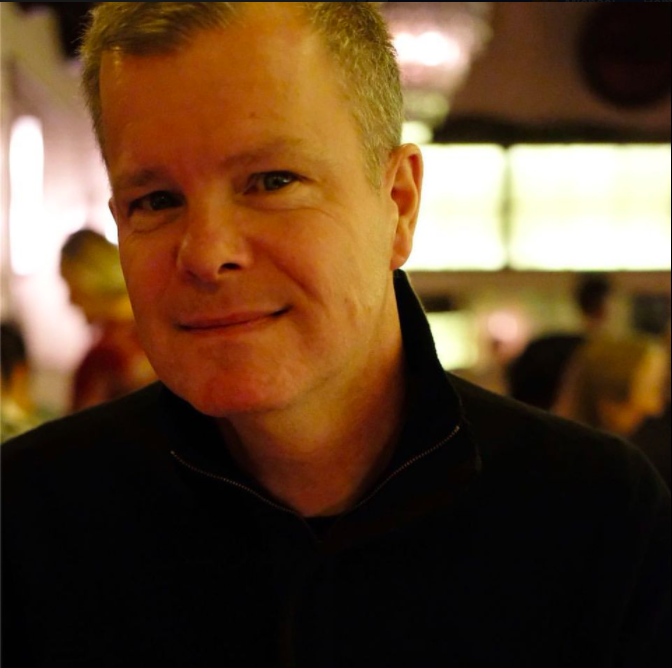- Caitlin Fisher
- Dr. Hendrix Neptune
- Tracey Steer
- Anonymous Poster
- Mr. Abbott & Dom Psd
- Hannah Council
- Steph Maynard
- Michael Murray
- Jen Cascino & Jordana Jacobs
- Alana Solomon
- Barb Murray
- Terry Maynard
- Zachary Rombakis
- Andrew Bethune
- Rebecca
- Rob Balcer
- Kathyrn McLeod
- Paul Fenn
- Jim Diorio
- Michael Harrington
Muskoka Spring
My father dropped his boat down onto the ice.
Since my mother’s been gone he’s come up north earlier and earlier,
leaving the Avenue Road condo they bought
before the diagnosis
in May, in April, now in March.
Early spring and the lake had mostly thawed.
He called and said he could use a hand,
forgetting that I’m not down the gravel road, or even in Toronto,
but six hours away, in Ann Arbor—another border between us
.
My wife saw me off the next morning, happy an excuse had called
me home.
When I pull in dad quickly masks his surprise.
We walk down to the boathouse and the sight smacks me
as sharp as the cold air:
his boat rocked off its keel, the stern cracking
through two inches of ice in the slip where the bow rests.
On one side of the boathouse, four 6x6s lie stacked neatly,
pulled from under the boat before he dropped it onto the ice.
How the hell did you move those? I ask.
He stares at me.
We winch the boat up and leave it hanging there, almost ready,
almost useful.
At night we sit at the covered porch picnic table
drinking rye and 7s by the glow
of the electric space heater.
Rye and 3 1/2s, he jokes—Don’t tell your mother—
though from where I sit it looks like he’s subtracted
all the way to straight rye.
Don’t tell your mother, he says
and holds my gaze,
the words hanging between us
like the boat suspended above the ice,
until he looks away and I drink
him in.
Full head of wavy silver hair, Brylcreem
from a tube that’s been here since I was a kid.
Smooth cheeks Macintosh apple yellow-red
Ragwool sweater over an ironed plaid shirt,
pressed green work pants above stiff-soled work boots.
Stiff-souled man.
Too much rye and I bounce awake at two.
Dad’s room is empty.
I pull on my coat and search the kitchen for a light
then step outside. It’s crisp and cold, breath pluming in the air.
A black sky with silver stars that I watch for too long.
I start towards the drive then turn to the lake,
light from the boathouse down the path visible above the treetops.
Inside, dad works on the old outboard lying
on the dock beside the slip.
The new engine hangs beside him on the winter motor mount.
I figure we get this running before the cold
and you can take that fancy new thing
back to Perkins. Waste of money. I don’t need it and maybe
the dealer will take it back if it’s before the season ends.
Dad, it’s March, I say to him.
Dad, Perkins closed in 1987, I say to myself.
That’s what I said—take this back before the season
and we’ll get your money back.
He looks at me then away, straightens
up a little and stands, eyes roving around the boathouse
like he’s waking up in an unfamiliar
room. His gaze rests on a beer bottle,
a Labatt 50 stubby we found one day bobbing
at the edge of the lake the summer our son was born.
Dad opened it that afternoon,
Message in a bottle, he proclaimed, feeding off mum’s disapproval
as he downed the clouded brew.
He stares at it for a long while
then looks at me.
Jesus, he says.
How’d we get here?
–Andrew Bethune

Andrew Bethune
Andrew Bethune grew up in Ottawa, where he spent a lot of time in his own and his friends’ basements listening to records and drinking beer. He lived in Victoria, London (England), Toronto, and Michigan before settling in Dublin, Ohio, with his wife and three children. He holds an MFA in Creative Writing from the University of British Columbia; his Cold War punk rock thesis screenplay, Death or Glory, is currently under consideration in novel format at a Canadian publishing house. The second novel progresses…slowly.
